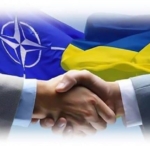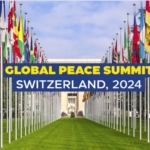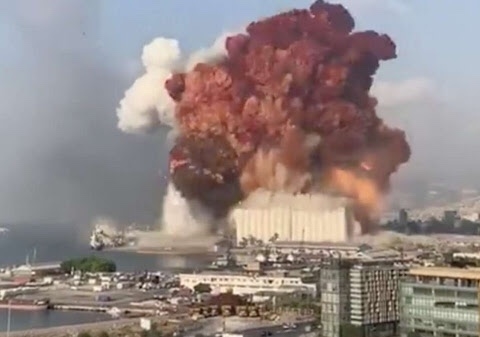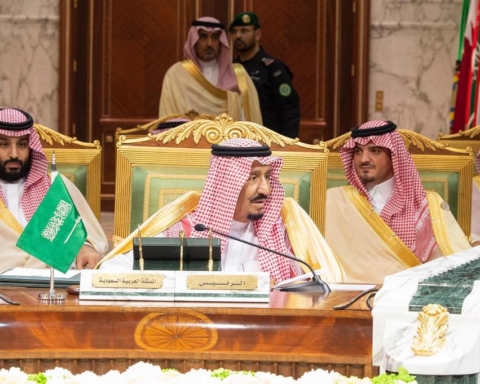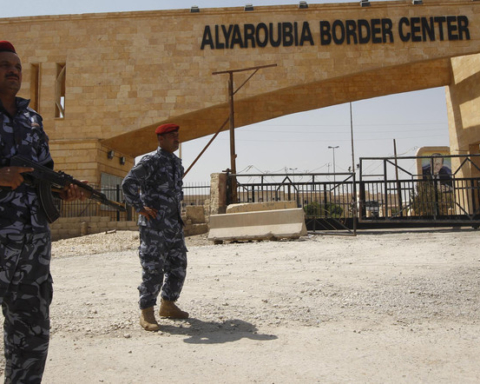
On 15th April the 29th edition of the Arab League Summit ended. The meeting, held in Dharan (Saudi Arabia), has gathered the 21 active members of the Arab League and some key personalities of the International arena, such as the High Representative of the European Union for Foreign Affairs and Security Policy Federica Mogherini, the chairman African Union Commission Moussa Faki and the Secretary-General of the United Nations Antonio Guterres. The only missing member was Syria, suspended by the League in November 2011, when protests arose in the country and the regime reacted with violence over civilians.
Most of the countries were represented by heads of State or Government; Qatar, instead, sent his representative to the Arab League. The rest of the Arab community did not take the decision so well. As we know, the relationships between the Gulf monarchy and several Arab and Middle Eastern nations have sharply deteriorated in the past few months, thus causing a diplomatic crisis among neighbours. In particular, on 5th June, Saudi Arabia, United Arab Emirates, Bahrain and Egypt broke their diplomatic relations with Qatar, accusing the country of supporting extremist and terrorist groups. Anyways, the Gulf nation received the invitation to the summit, also being ensured that the diplomatic crisis would not have been a topic on the summit’s agenda. Therefore, the absence of the Emir of Qatar has been seen as a sign of arrogance, thus fuelling the already tense relations.
The meeting focused on the topics on the agenda, showing alignment among leaders on major and essential issues related to the balance of power in the region but also to the relations among the Arab community and other external actors.
Three main topics on the table: the Arab-Israeli dispute, the war in Yemen and the dangerous influence of Iran. Not on the list, instead, neither the diplomatic crisis with Qatar nor the war in Syria. However, in a statement published by the Arab League after the summit, the League called for “independent International investigation to guarantee the application of the International law against anyone proven to have used chemical weapons”. To be noted that the summit started 24 hours after the US, UK and France launched air strikes on Syrian military installations in response to a chemical attack on rebels in Eastern Ghouta. Both Syria and Russia denied the action.
PALESTINE AND ISRAEL
Lights on Palestine and Israel. The Arab community showed an interesting position. On one hand, the countries have unanimously condemned president Trump’s decision to move the US embassy from Tel Aviv to Jerusalem, thus officially recognising the latter as the capital of Israel. The US has traditionally played the role of mediator in the dispute between Palestine and Israel; hence, such a decision was seen by the Arab leaders as a significant shift from a neutral position, to the one of a direct stakeholder. Given the volatile situation in the Middle East, this move is not only relevant but potentially dangerous. King Salman -who named the meeting “Jerusalem Summit” to stress the solidarity of Arab countries towards the Palestinian people- reaffirmed during the day that Arab leaders recognise the right of Palestinians to establish their own independent nation, with Jerusalem as the capital. According to them, East Jerusalem belongs to the Palestinian territory. Moreover, King Salman announced the donation of $ 150 million to the religious administration that runs the Islamic religious sites in Jerusalem, such as the Al-Aqsa mosque and other $50 million to the programmes conducted by the United Nations Relief and Works Agency for Palestine Refugees in the Near East (UNWRA).
On the other hand, the Arab leaders- all but the Palestinian president Abbas- supported the peace plan presented by Trump. Although the details of this plane have not been notified yet, it is likely that it would be printed on a two-state solution.
WAR IN YEMEN
Another hot topic was the war in Yemen. After three years, this civil conflict is still on and involves several nations, both Arab and foreign ones, such as the US and Russia, both on a military level and a political one. The fight sets forces supporting the government of President Hadi, who, however, has lost control of several areas of the country against the Houthi rebels, who fight along with the former president Saleh and are militarily and financially supported by Iran. To complete the picture, we should add the Saudi-led military coalition, which involves also Western powers such as France and the UK, and Middle Eastern allies, as the United Arab Emirates. Once again, the Arab leaders reiterated their commitment to restore the unity, integrity, security, sovereignty and independence of Yemen. According to them, the Houthi bear the full responsibility for the situation and this assumption leads to the third main topic of the summit, that is Iran’s aggressive behaviour in foreign policy.
IRAN’S AGGRESSIVE POLICY
The summit was also an opportunity to condemn Iranian foreign policy, too often driven by an aggressive behaviour and persistent violation of the principles of the international law. First and foremost, Teheran’s support to the Houthis in Yemen, but also to President Assad in Syria. It seems clear that King Salman took the summit as a chance to align his Arab friends against his historic rival, Iran. To date, Iran is seen as the main cause of instability in the region, “guilty” as it is of using its military and financial resources to foster proxy wars in countries already devastated by a civil war, such as, indeed, Syria and Yemen. As already mentioned, the Iranian Shiite militias are fighting in Syria along with Assad’s regime, Shiite as well. Similarly, in Yemen, Iran’s military experience and weapons offer a valuable help to the Houthis, who have managed to take control of several areas of the country, included the capital Sana’a. The replay came almost immediately from Tehran. The spokesperson of the Iranian Ministry of Foreign Affairs Bahram Qasemi clearly stated that the accusation lifted during the summit was just the result of the pressure of Saudi Arabia, his main foe but also the host of the summit.
As we can see, the situation in the Middle East is still very tense. Though countries share some objectives and intentions, there are lots of hot topics still on the table but most of all there is no plan or clear “course of action” to achieve these aims. It is desirable that this unity of thoughts will soon turn into practical actions, which would lead –step by step- to improve the security and stability in the region.
Paola Fratantoni

